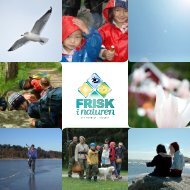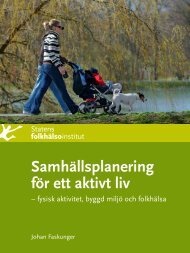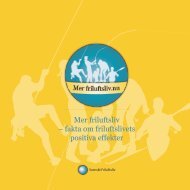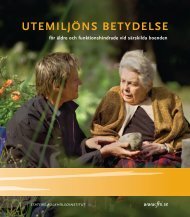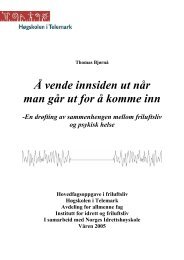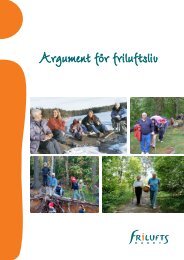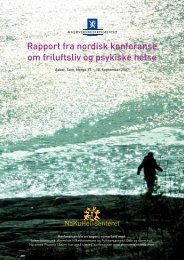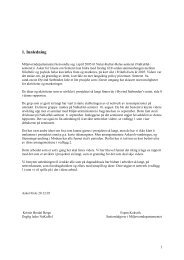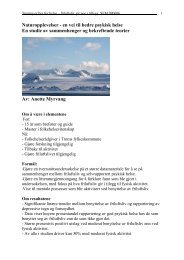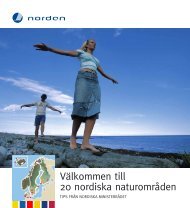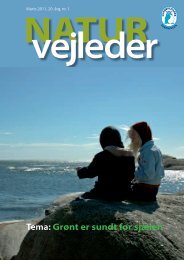Green Care: A Conceptual Framework - Frisk i naturen
Green Care: A Conceptual Framework - Frisk i naturen
Green Care: A Conceptual Framework - Frisk i naturen
You also want an ePaper? Increase the reach of your titles
YUMPU automatically turns print PDFs into web optimized ePapers that Google loves.
COST – the acronym for European Cooperation in Science and Technology – is the oldest<br />
and widest European intergovernmental network for cooperation in research. Established<br />
by the Ministerial Conference in November 1971, COST is presently used by the scientific<br />
communities of 35 European countries to cooperate in common research projects supported<br />
by national funds.<br />
The funds provided by COST – less than 1% of the total value of the projects – support the<br />
COST cooperation networks (COST Actions) through which, with EUR 30 million per year,<br />
more than 30.000 European scientists are involved in research having a total value which<br />
exceeds EUR 2 billion per year. This is the financial worth of the European added value which<br />
COST achieves.<br />
A “bottom up approach” (the initiative of launching a COST Action comes from the<br />
European scientists themselves), “à la carte participation” (only countries interested in<br />
the Action participate), “equality of access” (participation is open also to the scientific<br />
communities of countries not belonging to the European Union) and “flexible structure” (easy<br />
implementation and light management of the research initiatives) are the main characteristics<br />
of COST.<br />
As precursor of advanced multidisciplinary research COST has a very important role for<br />
the realisation of the European Research Area (ERA) anticipating and complementing the<br />
activities of the <strong>Framework</strong> Programmes, constituting a “bridge” towards the scientific<br />
communities of emerging countries, increasing the mobility of researchers across Europe and<br />
fostering the establishment of “Networks of Excellence” in many key scientific domains such<br />
as: Biomedicine and Molecular Biosciences; Food and Agriculture; Forests, their Products<br />
and Services; Materials, Physical and Nanosciences; Chemistry and Molecular Sciences<br />
and Technologies; Earth System Science and Environmental Management; Information and<br />
Communication Technologies; Transport and Urban Development; Individuals, Societies,<br />
Cultures and Health. It covers basic and more applied research and also addresses issues of<br />
pre-normative nature or of societal importance.<br />
Web: www.cost.esf.org<br />
© COST Office, 2010<br />
No permission to reproduce or utilise the contents of this book by any means is necessary,<br />
other than in the case of images, diagrams or other material from other copyright holders. In<br />
such cases, permission of the copyright holders is required.<br />
Neither the COST Office nor any person acting on its behalf is responsible for the use which<br />
might be made of the information contained in this publication. The COST Office is not<br />
responsible for the external websites referred to in this publication.



